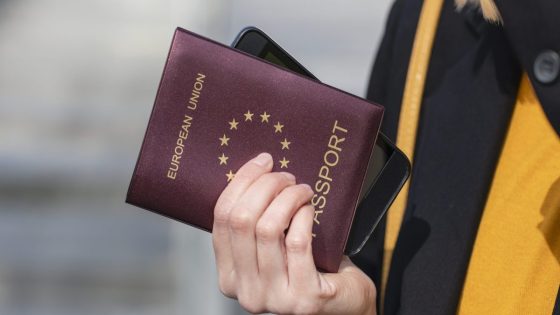The recent ruling by the EU’s top court has put an end to Europe’s last ‘golden passport’ schemes, a significant move in the ongoing debate about citizenship for sale. This decision, announced on April 29, 2025, has far-reaching implications for countries like Malta, which have been criticized for selling citizenship to wealthy individuals, often without stringent checks.
- Europe's last 'golden passport' scheme ended
- EU court rules against Malta's program
- Sale of 'golden passports' banned by EU
- Maltese passports linked to Russian buyers
- Malta's scheme deemed illegal by EU court
As nations grapple with issues of immigration and national security, the court’s ruling highlights the need for more robust regulations. The EU’s stance against Malta’s golden passport scheme raises questions about the future of similar programs across Europe and their impact on global citizenship norms.
This ruling invites reflection on the ethics of citizenship sales. What does it mean for countries that have relied on such schemes for revenue? The implications are profound:
- Potential loss of revenue for nations like Malta.
- Increased scrutiny of citizenship programs worldwide.
- Shift in public opinion regarding immigration policies.
As countries navigate these changes, it is crucial for policymakers to consider the ethical dimensions of citizenship and the long-term effects of such programs on national identity.



























